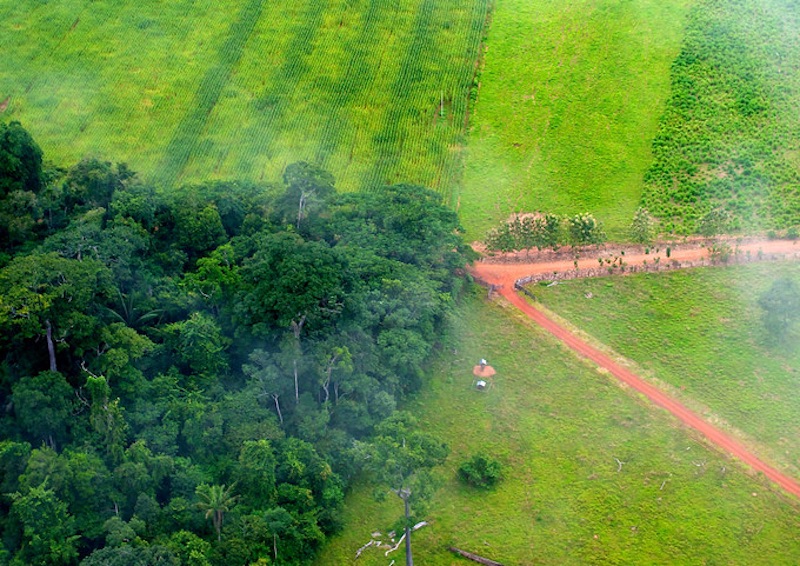Commission’s trade sanctions proposal falls short
Fern | 22 June 2022
Commission’s trade sanctions proposal falls short
Today, the European Commission released a proposal for improving the implementation and enforcement of environmental and labour provisions in the European Union’s (EU) Free Trade Agreements (FTAs). For the first time, the Commission is considering using sanctions against partner countries who breach two multilateral agreements - the Paris Agreement on Climate Change and the International Labour Organisation’s Declaration on fundamental principles and rights at work. While Fern welcomes this shift, we are disappointed by the proposal’s lack of ambition, especially when it comes to addressing trade’s role in driving climate breakdown.
“We welcome today’s proposal to impose trade sanctions when parties to a trade deal violate multilateral agreements, but are concerned by its shortcomings,” said Perrine Fournier, Forest and Trade Campaigner at Fern.
“The scope for trade sanctions is too narrow. Moreover, it is unclear whether this will apply to the EU-Mercosur agreement, which, in its current form, is a threat to forests.”
One of Fern’s main concerns is that the proposal fails to include the most relevant environmental agreements, such as the Convention on Biological Diversity. The Paris Agreement contains very weak protections for forests, so requiring it to be respected will have little impact on preventing deforestation.
Provisions on environment and labour are contained in Trade and Sustainable Development (TSD) chapters of FTAs, which are supposed to commit the Parties to respect international rules and standards. Yet historically, TSD chapters have had very weak enforcement provisions.
The Commission states that it will put sustainability at the heart of its FTAs by removing trade and investment barriers on the raw materials needed for the green energy transition. Yet it fails to consider the negative impacts mining those materials is already having in producer countries.
“The EU’s grand renewable energy plans will require huge amounts of raw materials to produce solar panels or wind turbines. They are usually found in highly forested countries like Indonesia or Brazil, which are negotiating FTAs with the EU.
Their forests have already been ravaged to produce agricultural commodities such as palm oil and beef to feed the EU market. Without prioritising the effective implementation of international environmental, labour, and human rights standards, the EU’s green transition could be a new source of pressure on forests, as well as on the rights of communities and Indigenous People.
Rather than tackling this impending disaster head on, the Commission has looked away. The proposal fails to recognise that we need to reduce consumption to stay within our planetary boundaries, and shows the limits of the ‘green growth’ model,” added Fournier.
On a more positive note, the Commission makes a strong commitment to increase and improve dialogue with trading partners and, where necessary, assist them in meeting international and EU sustainability requirements, for example on tackling deforestation. This is something that was already done with the Forest Law Enforcement, Governance and Trade (FLEGT) Action Plan which grants preferential EU market access to countries who improve forest governance.
“If the Commission is serious about its aim of improving legal frameworks in partner countries through trade, then it is vital that it learns from previous measures to protect forests, such as its Voluntary Partnership Agreements (VPAs) with timber-producing countries. This requires important financial resources, political will, long-term commitment and a meaningful role for civil society. It remains unclear whether the Commission is willing to go beyond words,” Fournier concluded.






